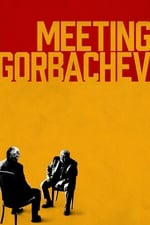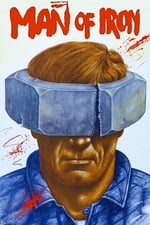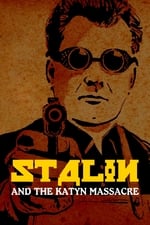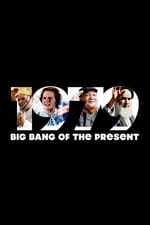Personal Info
Known For Acting
Known Credits 23
Gender Male
Birthday September 29, 1943 (80 years old)
Place of Birth Popowo, kujawsko-pomorskie, Polska
Also Known As
- Lech Walesa
Content Score
100
Yes! Looking good!
Login to report an issue
Biography
Lech Wałęsa (born 29 September 1943) is a Polish statesman, dissident, and Nobel Peace Prize laureate, who served as the President of Poland between 1990 and 1995. After winning the 1990 election, Wałęsa became the first democratically elected President of Poland since 1926 and the first-ever Polish president elected by popular vote. A shipyard electrician by trade, Wałęsa became the leader of the Solidarity movement, and led a successful pro-democratic effort, which in 1989 ended Communist rule in Poland and ushered in the end of the Cold War.
While working at the Lenin Shipyard (now Gdańsk Shipyard), Wałęsa, an electrician, became a trade-union activist, for which he was persecuted by the government, placed under surveillance, fired in 1976, and arrested several times. In August 1980, he was instrumental in political negotiations that led to the ground-breaking Gdańsk Agreement between striking workers and the government. He co-founded the Solidarity trade-union, whose membership rose to over ten million.
After martial law in Poland was imposed and Solidarity was outlawed, Wałęsa was again arrested. Released from custody, he continued his activism and was prominent in the establishment of the Round Table Agreement that led to the semi-free 1989 Polish legislative election and a Solidarity-led government. He presided over Poland's transition from Marxist–Leninist state socialism into a free-market capitalist liberal democracy, but his active role in Polish politics diminished after he narrowly lost the 1995 Polish presidential election. In 1995, he established the Lech Wałęsa Institute.
Since 1980, Wałęsa has received hundreds of prizes, honors and awards from multiple countries and organizations worldwide. He was named the Time Person of the Year (1981) and one of Time's 100 most important people of the 20th century (1999). He has received over forty honorary degrees, including from Harvard University and Columbia University, as well as dozens of the highest state orders, including the Presidential Medal of Freedom, the Knight Grand Cross of the Order of the Bath, and the French Grand Cross of Legion of Honour. In 1989, Wałęsa was the first foreign non-head of state to address the Joint Meeting of the U.S. Congress. The Gdańsk Lech Wałęsa Airport has borne his name since 2004.
Wałęsa was born in Popowo, Reichsgau Danzig-West Prussia, Germany (German-occupied Poland). His father, Bolesław Wałęsa (1908–1945), was a carpenter who was rounded up and interned in a forced labour camp at Młyniec (outpost of KL Stutthof) by the German occupying forces before Lech was born. Bolesław returned home after the war but died two months later from exhaustion and illness. Lech's mother, Feliksa Wałęsa (née Kamieńska; 1916–1975), has been credited with shaping her son's beliefs and tenacity. ...
Source: Article "Lech Wałęsa" from Wikipedia in English, licensed under CC-BY-SA 3.0.
Lech Wałęsa (born 29 September 1943) is a Polish statesman, dissident, and Nobel Peace Prize laureate, who served as the President of Poland between 1990 and 1995. After winning the 1990 election, Wałęsa became the first democratically elected President of Poland since 1926 and the first-ever Polish president elected by popular vote. A shipyard electrician by trade, Wałęsa became the leader of the Solidarity movement, and led a successful pro-democratic effort, which in 1989 ended Communist rule in Poland and ushered in the end of the Cold War.
While working at the Lenin Shipyard (now Gdańsk Shipyard), Wałęsa, an electrician, became a trade-union activist, for which he was persecuted by the government, placed under surveillance, fired in 1976, and arrested several times. In August 1980, he was instrumental in political negotiations that led to the ground-breaking Gdańsk Agreement between striking workers and the government. He co-founded the Solidarity trade-union, whose membership rose to over ten million.
After martial law in Poland was imposed and Solidarity was outlawed, Wałęsa was again arrested. Released from custody, he continued his activism and was prominent in the establishment of the Round Table Agreement that led to the semi-free 1989 Polish legislative election and a Solidarity-led government. He presided over Poland's transition from Marxist–Leninist state socialism into a free-market capitalist liberal democracy, but his active role in Polish politics diminished after he narrowly lost the 1995 Polish presidential election. In 1995, he established the Lech Wałęsa Institute.
Since 1980, Wałęsa has received hundreds of prizes, honors and awards from multiple countries and organizations worldwide. He was named the Time Person of the Year (1981) and one of Time's 100 most important people of the 20th century (1999). He has received over forty honorary degrees, including from Harvard University and Columbia University, as well as dozens of the highest state orders, including the Presidential Medal of Freedom, the Knight Grand Cross of the Order of the Bath, and the French Grand Cross of Legion of Honour. In 1989, Wałęsa was the first foreign non-head of state to address the Joint Meeting of the U.S. Congress. The Gdańsk Lech Wałęsa Airport has borne his name since 2004.
Wałęsa was born in Popowo, Reichsgau Danzig-West Prussia, Germany (German-occupied Poland). His father, Bolesław Wałęsa (1908–1945), was a carpenter who was rounded up and interned in a forced labour camp at Młyniec (outpost of KL Stutthof) by the German occupying forces before Lech was born. Bolesław returned home after the war but died two months later from exhaustion and illness. Lech's mother, Feliksa Wałęsa (née Kamieńska; 1916–1975), has been credited with shaping her son's beliefs and tenacity. ...
Source: Article "Lech Wałęsa" from Wikipedia in English, licensed under CC-BY-SA 3.0.








